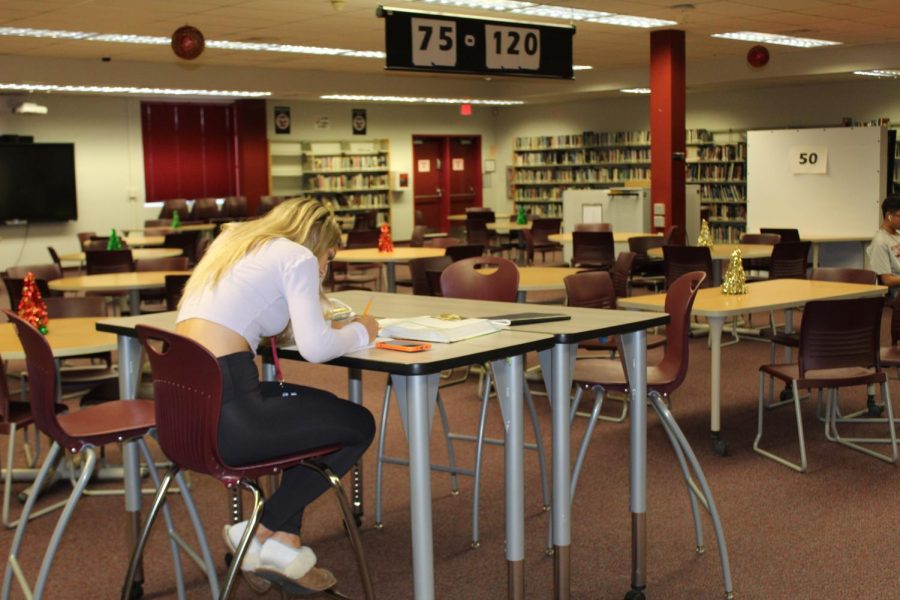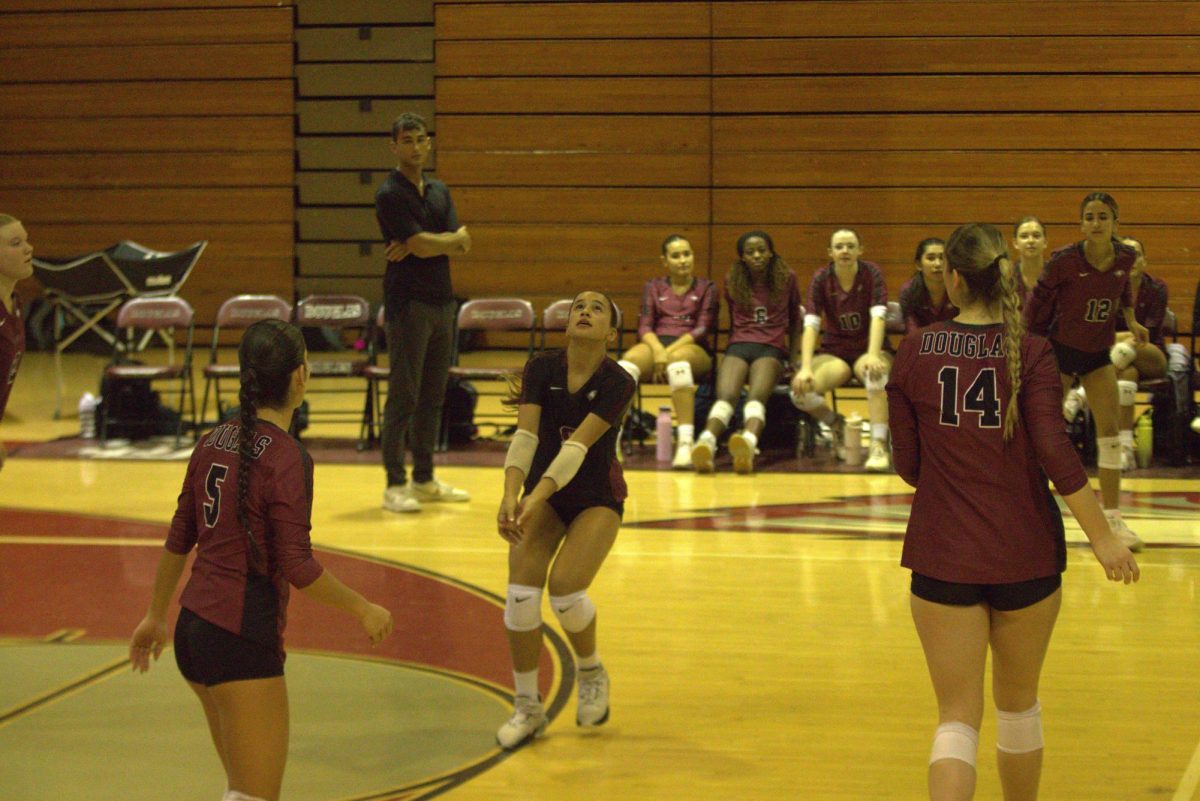MSD students share their studying techniques in preparation for tests
January 11, 2023
Textbooks and study guides. Computers and caffeine. Cramming all night to retain every little detail. Studying for an exam can be a difficult task for many students.
Tests and quizzes are common ways for teachers to measure a student’s understanding of a lesson or topic. Since they encompass a large amount of material, some students struggle with knowing where and how to start preparing. A few students at Marjory Stoneman Douglas High School offer their study techniques and advice for acing exams.
Sophomore Charlotte James enjoys studying with her friends. She believes reviewing with multiple people is an effective way to stay motivated and encouraged.
“I generally do Zoom calls with my friends, and we do Kahoots and [other review games] together,” James said.
Using study websites and review games can also be a suitable solution to the more traditional flash cards method. James uses educational platforms like Quizlet, Kahoot and Quizizz. These websites provide an interactive and immersive experience that stimulates the mind. The games help establish understanding through its spelling and matching problems, as well as multiple-choice questions. James’s technique is called “game-based learning,” which involves using games and simulations to learn and teach.
Romas Tamosvicius, an author for the Learning Industry, stated in an article about game-based learning that “Playing games greatly increases the brain’s capacity to memorize things. Games enhance the ability to think in a critical way, which boosts the capacity to retain information for a longer time.”
While game-based learning can make the studying process more appealing, some students may need additional help to retain information.
Freshman Grace Wang finds memorizing vocabulary and facts to be one of the most challenging aspects of studying. Over time, she has used a system to help her recall what she learned: mnemonic studying.
“I try to relate [the terms] to something I know,” Wang said. “I also find using rhyming words to study helps a lot.”
For example, if Wang had to memorize the Periodic Table, she would connect each element to a real-world situation, such as imagining two balloons to remember helium as element number two.
Mnemonic studying is the process of using phrases, mental pictures, rhymes or songs for memorization. The technique gives an ordinary subject matter a more memorable connotation. This could make recalling information on an exam easier.
A study conducted by the National Center for Biotechnology Information about the effects mnemonic training has on the brain stated, “Mnemonic training has potent and enduring effects on memory capacity. Participants in the mnemonic condition showed significantly greater improvement in memory performance after training than participants of the active and passive control groups.”
However, the mnemonic technique may not work for every exam. Tests that require re-doing practice problems, such as in math and science classes, can be difficult. Since there is usually only one correct answer for these exams, one must develop a deep understanding of each topic. Sophomore Malena Severe prepares to take a biology exam by taking advantage of the resources provided by her teacher.
“I read our textbook, review PowerPoints, and look over practice quizzes [that we did in class],” Severe said.
For math, Severe focuses on understanding the terms and formulas that she learned. This way, she can apply her conceptual understanding of a topic to solve any math problem.
“I try to read as much of my notes as possible,” Severe said. “I also try to review old math terms. This helps me if a unit contains the same terms from the previous units I reviewed.”
Severe’s study technique can be referred to as the Feynman Technique, a method that involves breaking down complex information into simpler terms.
Analyst Don Ly stated in an article on the Feynman Technique, “The goal is to learn by explaining in simple digestible language that a fourth grader can understand. If you can’t simply explain and teach the concept, then you don’t understand it well enough.”
Wang also uses the Feynman Technique to better understand what she is studying.
“It is better to understand how you can get to a formula and understand the reasoning behind it,” Wang said. “I would advise people to make connections and form reasoning behind what they are learning.”
However, when she studies for a language test, Severe additionally uses external resources to review, such as videos reinforcing what she learned in class or catchy songs to help her remember Spanish grammar. Using resources that are found on the internet can offer an extra boost of information that may not have been explained well in class.
For many, the night before an exam can be stressful as one may try to cram in last-minute information. While some may find studying the day prior to be beneficial, James prefers giving her brain a break.
“In my opinion, the night before an exam is too late to be studying for [a test],” James said. “I will usually watch a movie that doesn’t take any brainpower. Trying to cram anything else in will just make you stressed.”
Though a little bit of stress may help motivate one to do well on an exam, too much stress can have a negative impact on one’s mental health. Taking a walk, listening to music or drinking a cup of tea are a few examples of relaxing activities to unwind the night before a big test.
The Canada Mental Health Association stated in an article about the effects of stress that “Long-term stress increases the risk of mental health problems such as anxiety and depression, substance use problems, sleep problems, pain and bodily complaints such as muscle tension.”
Everyone has their own way of learning and processing information. While taking advice from others to prepare can be helpful, it can be equally important to develop one’s own study techniques to help themselves and their academic performance. Considering the pre-established studying techniques found on the internet and the abundance of resources offered by schools, students can utilize various methods to perform well on exams.











